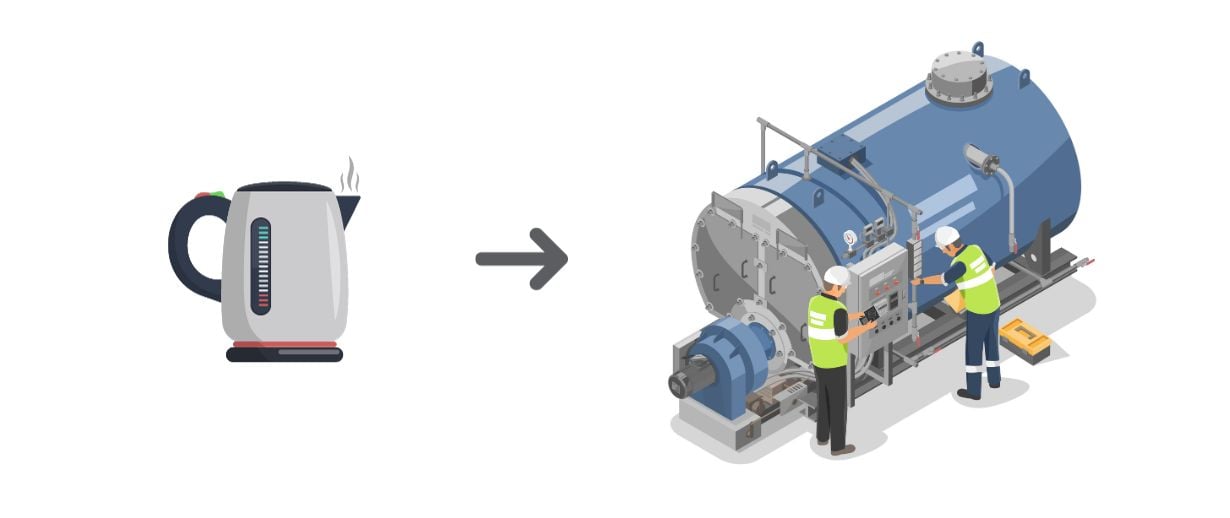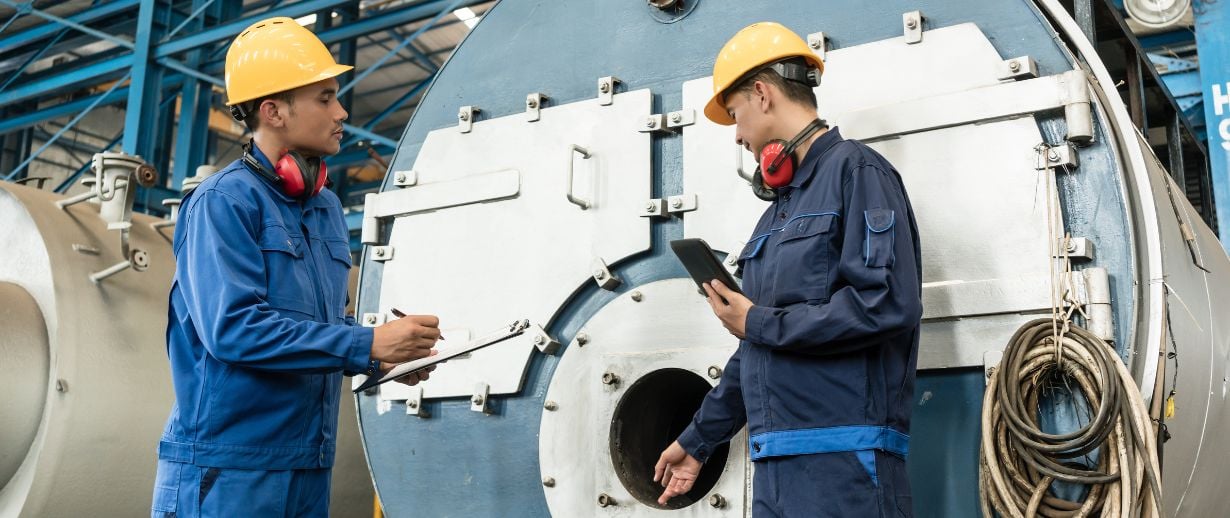Boiler scaling is a common problem that can significantly impact the efficiency and performance of industrial boiler systems. In this blog, Mark Simkiss, Business Development Manager, will delve into the details of boiler scaling, its causes, the negative effects it can have, and most importantly, how to prevent it to ensure scale-free and efficient boilers.
Understanding Boiler Scaling:

When discussing scaling, people are often aware of the furring or hard scale that forms on the heating element of kettles in certain parts of the country. Boiler scaling is very similar to that but on a much larger scale. Scaling occurs when mineral deposits, primarily calcium and magnesium, accumulate on the internal surfaces of the boiler. These deposits form due to the presence of hard water, which contains high levels of dissolved minerals. As water is heated in the boiler, these minerals precipitate and form scale deposits, reducing the heat transfer efficiency and impeding the smooth operation of the boiler system.
Causes of Boiler Scaling:
Several factors contribute to the formation of scale deposits in boilers:
Hard Water: Water with a high mineral content, commonly known as hard water, is a major cause of scaling.
Elevated Temperatures: As water is heated, the solubility of minerals decreases, leading to their precipitation and scaling.
Inadequate Water Treatment: Insufficient water treatment methods or the absence/failure of water softening processes can accelerate scaling.
pH Imbalance: Incorrect pH levels in the water can promote the formation of scale deposits.
Negative Effects of Boiler Scaling:

The presence of scale deposits can have detrimental effects on boiler systems:
Reduced Efficiency: Scaling decreases heat transfer efficiency, resulting in increased energy consumption and higher operating costs. This leads to higher CO2 emissions as more fuel is burned to compensate for the reduced efficiency.
Decreased Heat Transfer Rates: Scale deposits act as insulators, impeding the transfer of heat from combustion gases to the water. A ¼ mm of scale can increase energy use for heating by 10%. This increased energy consumption further contributes to higher CO2 emissions.
Overheating and Stress: Scale deposits cause localised overheating on heat transfer surfaces, leading to metal stress and potential equipment failure.
Increased Maintenance and Downtime: Scaling requires costly cleaning, increased maintenance, and potential shutdowns for descaling procedures. This leads to additional resource consumption and waste generation, impacting the environment.
Environmental Impact: Boiler scaling not only affects the efficiency and performance of the boiler system but also results in higher energy consumption and increased CO2 emissions. These emissions contribute to climate change and air pollution, further exacerbating environmental issues.
Preventing Boiler Scaling:
To maintain scale-free boilers and improve efficiency, preventive measures should be implemented:
Water Treatment: Implement proper water treatment processes, including pretreatment such as Demineralisation, Reverse Osmosis and water softening to reduce the mineral content in the water. Complete regular checks on these water systems to ensure they are performing as designed.
Scale Inhibitors: Consider the use of scale inhibitors to prevent the precipitation and accumulation of minerals.
Conclusion:
Boiler scaling can have significant negative effects on boiler efficiency and overall performance. By implementing effective preventive measures such as water treatment equipment to remove impurities and the use of chemical scale inhibitors, industries can maintain scale-free boilers and improve operational efficiency. Our water treatment experts can provide valuable insights into the best approach for your specific boiler system. Remember, a proactive approach to boiler maintenance and scale prevention can save energy, reduce costs, and ensure the longevity and reliability of your boiler system.
Here at Veolia Water Technologies UK, our purpose is to contribute to human progress by firmly committing to ecological transformation. This means adapting, improving, and prioritising sustainable patterns of production and consumption, including optimising boiler efficiency and reducing emissions.
If you would like to arrange a survey of your boiler system please get in contact here.